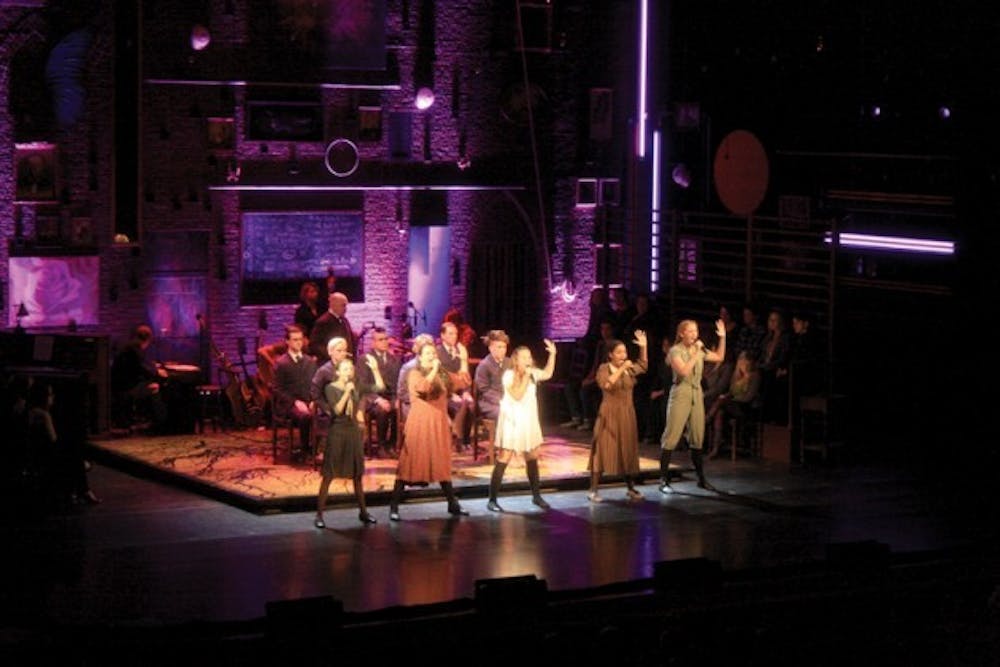Spring Awakening is truly an awakening for its characters and for the audience, adding a modern-day twist to a strict German society in the 1890s.
Originally written as a play in 1891 by Frank Wedekind, Spring Awakening was revived as a musical by Duncan Sheik (music) and Steven Sater (book and lyrics) when it hit Broadway in 2006. After winning eight Tony Awards and having over 800 Broadway performances, the show closed its doors, now only to be seen on a national tour, which visited the Center for the Arts Thursday night.
The musical shows the results of a society that put issues such as sexuality, homosexuality, suicide, and religion to the wayside while pursuing Victorian-era morality. Following the lives of Melchior (Christopher Wood), Wendla (Elizabeth Judd), and Moritz (Coby Getzug), the majority of the plot centers on adolescent confusion about sex and gender, and how a lack of truth can mar lives.
The focal point in Spring Awakening is the relationship between Melchior and Wendla. Throwing Victorian values out the window, Melchior helps Wendla to feel things in life she has never experienced. With fervent acting and flawless harmonies, the duo produces the song "The World of Your Body," during which Melchior shows Wendla what it is like to feel.
While Melchior is well-versed in the female anatomy, he tries to help his confused and befuddled friend, Moritz, unscramble the jumble of feelings and attractions he has toward both genders.
As teenage hormone-fueled emotions explode into songs such as "The Bitch of Living" and "Totally F*cked," the cast allows the music to take over as energetic chaos ensues on stage. The cast presents these taboo topics in a mature way, fulfilling roles admirably using body language and vocal tones to persuade the audience of the musical's lessons.
Strong vocals combine with modern rock beats to make this musical the breakthrough segue between Rent and American Idiot. The harmonies produced between the leads and background vocalists give an energy and power unparalleled by solos.
With a simplistic set, the staging is unconventional; audience members line the wings and the band, creating a backdrop against the dichotomy of modern neon lights and faded relics of a bygone era. Since the music is more rock-based than orchestral, the conventional multi-piece ensemble is dropped, leaving the bare necessities: guitars, drums, and piano.
As spoken words begin to fail the characters, hand microphones are produced from the folds of their clothing and they burst into song, creating a greater separation between leads and ensemble. Songs are often the internal monologues of the characters, letting them control the stage and the audience's attention, as all other actors freeze throughout the number, much like a soliloquy.
As the upbeat tone of discovery and adventure merges into the depression and reality of consequences, the music diverges from the rock tempo into more traditional Broadway piano-based ballads, tempering the audience's mood into catharsis and letting the actors leave nothing unexpressed.
"I loved the atmosphere set. [The musical showed] physical empathy [through] the music, lighting, acting and beautiful language," said Sam Robbins, a senior dance major. "It was a good presentation of what good theater is."
After watching this unconventional musical, audience members experience more than just an innovative and musically genius performance, but also an exploration of the everlasting taboos that are present through life and not only in an adolescent's awakening.
Email: arts@ubspectrum.com





